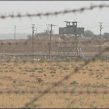
The Turkish Parliament Blocks Controversial Investment Plan
Publication: Eurasia Daily Monitor Volume: 6 Issue: 103
By:

The Turkish government drafted a bill on a proposed de-mining project on the Syrian border, which sparked controversy among neo-nationalists and Islamists (EDM, May 21). The Justice and Development Party (AKP) government proposed to lease the de-mined area for 44 years to a foreign company. The area was first mined when the Turkish-Syrian border was determined in 1956. The mined area consists of 216,000 decares of land along a 510 kilometer long and 350 meter wide area of the border. It has an estimated value of around $500 million. Around 80 percent of the area is available for agricultural use, while 70 percent is suitable for irrigation. "It is believed that there are 650,000 landmines in the territory: approximately one landmine every 500 meters. The mines have claimed 3,000 lives in the past 50 years while crippling 7,000. The mines were marked on a map while they were being laid" (Hurriyet Daily News, May 29).
The opposition parties argued that the AKP government wanted to lease the area to an Israeli company. Prime Minister Tayyip Erdogan replied to the opposition concerns saying: "Money has no religion, nationality, ethnicity or color. No matter who invests, it is not Israeli’s who will work in this area, only Turkish citizens will be working there and it will help reduce unemployment within our country" (Hurriyet, May 23).
The Republican People’s Party (CHP) leader Deniz Baykal stated that "we cannot give a 510-kilometer long border area to a foreign country. The Arabs are on one side and the Turks are on the other, while Israeli’s will be in the middle framing the area. Is there any meaning to this? We will not allow this to happen" (Hurriyet, May 27). Moreover, the CHP parliamentarian, Gurol Ergin, previously criticized the AKP government’s attempt to lease this land, alleging that it might create a "second Gaza" in the region (Anadolu Ajansi, May 15).
Baykal draw a parallel between the AKP’s attempt to lease the land to a foreign company and the U.S. military requesting transit rights through Turkish territory prior to the Iraq war in 2003. Baykal said that the opposition did not permit this to happen, and now the government had to be stopped in its efforts to "lease this land to a foreigner" (Hurriyet, May 27).
The opposition parties demanded that the Turkish armed forces (TSK) should be given the sole responsibility for the mine-clearing. Moreover, they alleged that the TSK also harbored reservations over the bill (EDM, May 21). Yet, the Turkish Chief of the General Staff Army-General Ilker Basbug, stated that NATO’s Maintenance and Supply Agency (NAMSA) must clear the mines (Vatan, May 22).
The opposition is not alone in criticizing the AKP government: Islamist intellectuals have also voiced concern. One well respected Islamist intellectual Ahmet Tasgetiren criticized the government in the Bugun daily, asking whether it was paying tribute to Israel because Prime Minister Erdogan had harshly criticized Israel in Davos in January (Bugun, May 28). Fehmi Koru, a childhood friend of President Abdullah Gul and Prime Minister Tayyip Erdogan, and another influential intellectual, also opposed the idea of leasing the land to an Israeli firm (Yeni Safak, May 28).
It appears that some APK parliamentarians shared these concerns. For instance, Sadik Yakut said "I am against leasing this land to an Israeli company. AKP parliamentarians are very sensitive about this issue" (Milliyet, May 29). Due to the passive resistance by AKP parliamentarians opposed to the government proposal, it was subsequently withdrawn.
The opposition and the AKP government agreed to work together to find a compromise on how to proceed to clear the mines. It was also reported that NAMSA might be permitted to visit the region to conduct de-mining operations. However, the Minister of Defense Vecdi Gonul, alleged that "the cost of clearing the mines varies at between $700 million to $3.5 billion. The government simply cannot invest that amount of money into this land. In 1992 such proposals emerged, but were abandoned due to insufficient funds" (Zaman, May 29).
Despite attracting a significant level of foreign investment to the Kurdish region, which would reduce local unemployment, suspicions toward Israel on the part of the Islamists and neo-nationalists forced the government to withdraw the proposal. Such a coalition of Islamist and nationalists also emerged during the March 1, 2003 vote to resist the AKP government over allowing U.S. troops to conduct operations in Iraq from Turkish territory.
The latest controversy between the opposition and AKP government once again exposed the depth of anti-Israeli sentiment among many segments of the Turkish population. Even AKP parliamentarians, who have had a tendency to vote in sympathy with Erdogan’s initiatives, refused to support the government over this sensitive issue.




